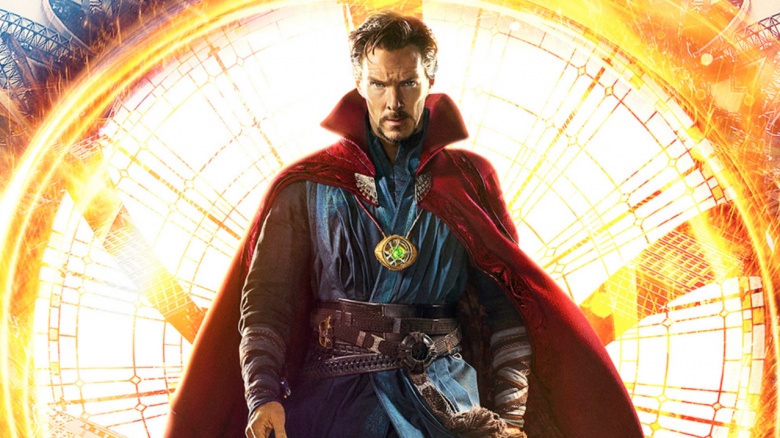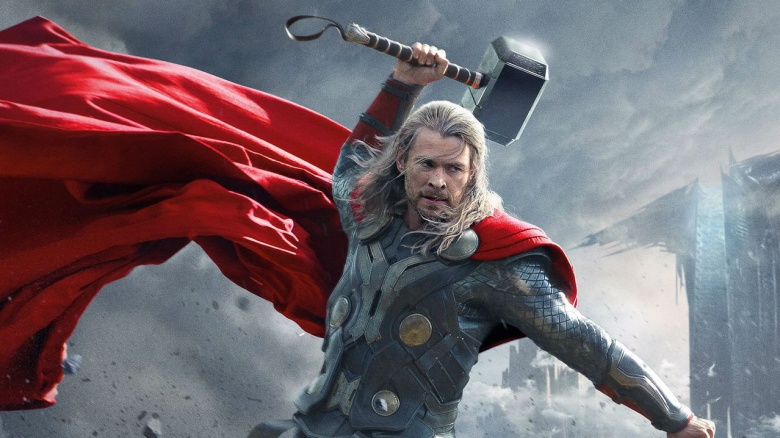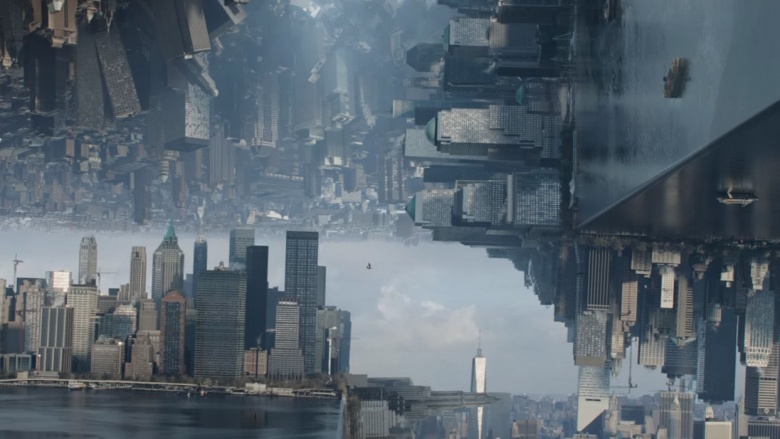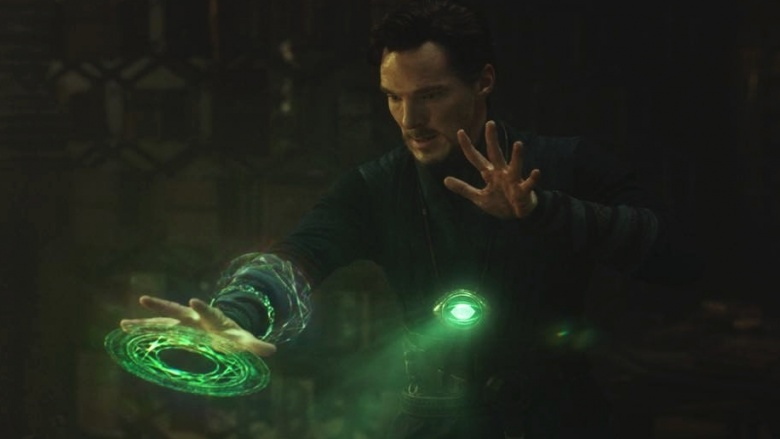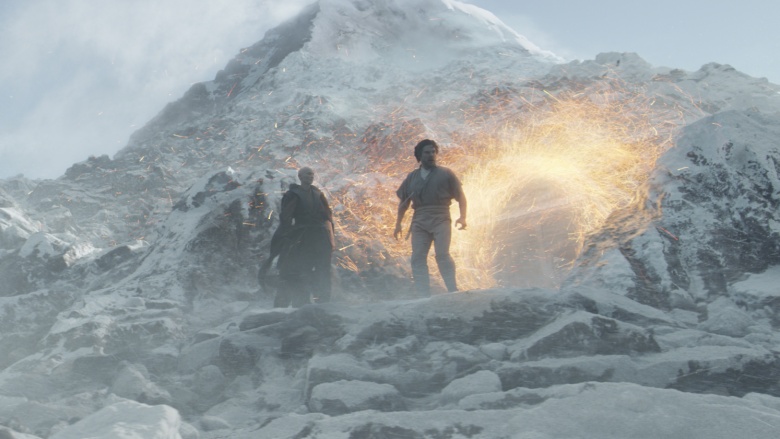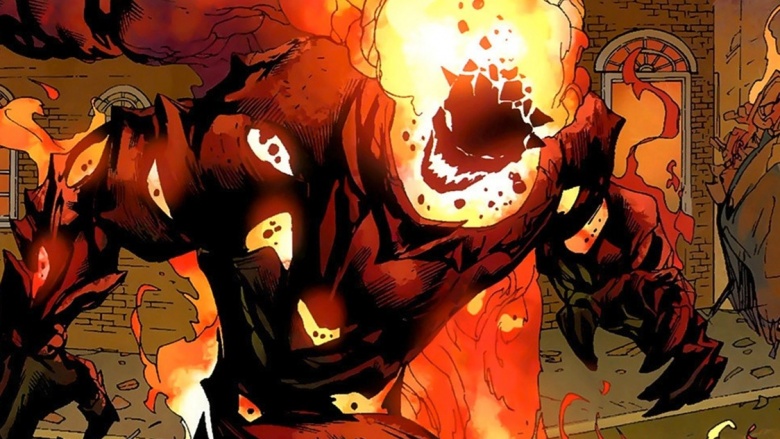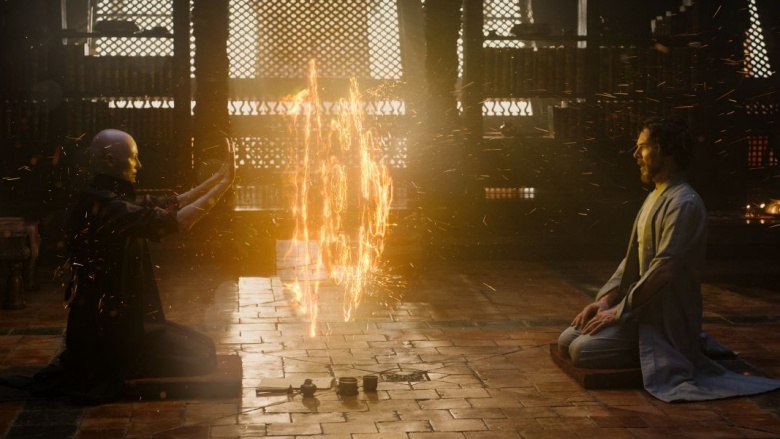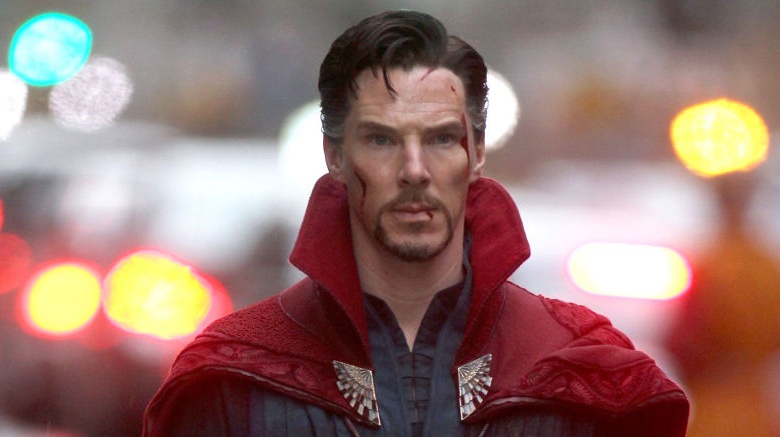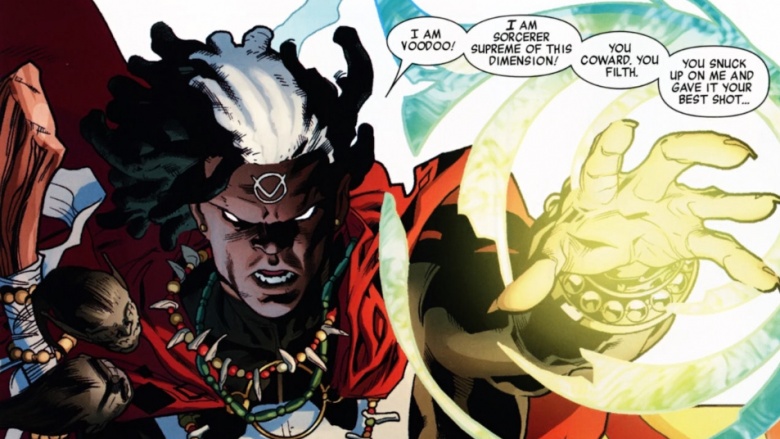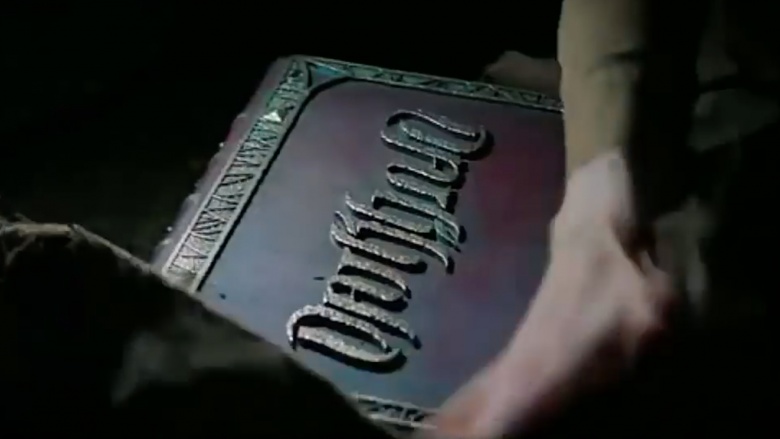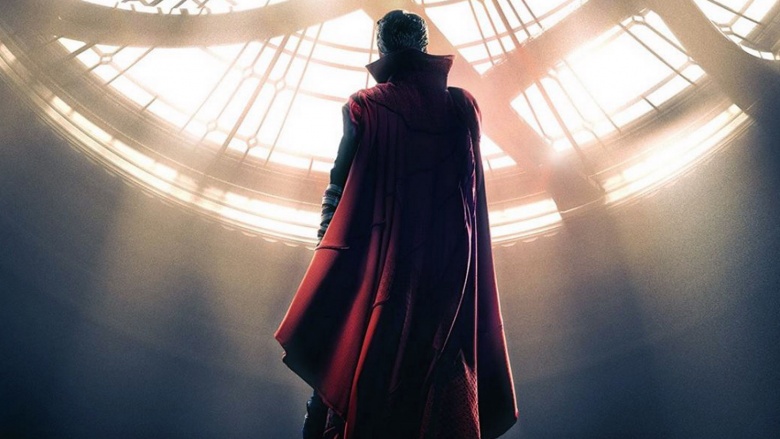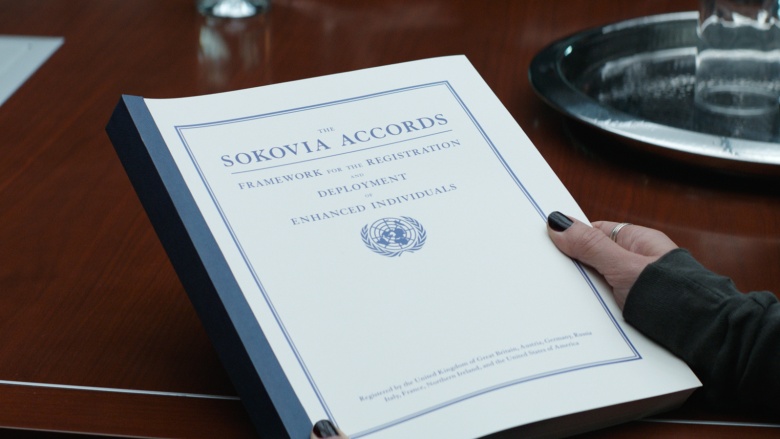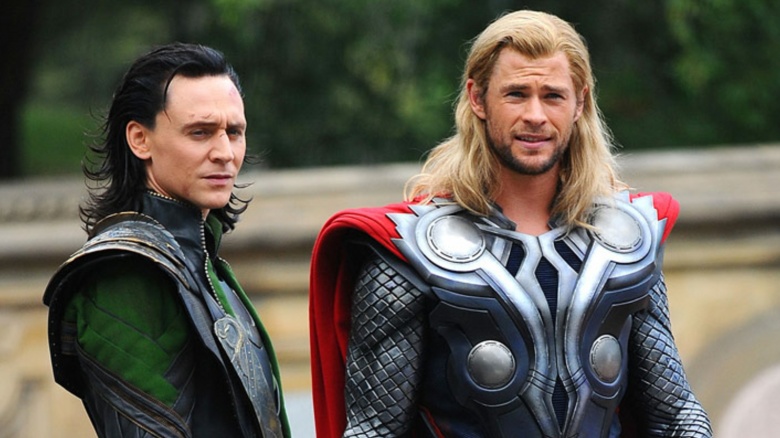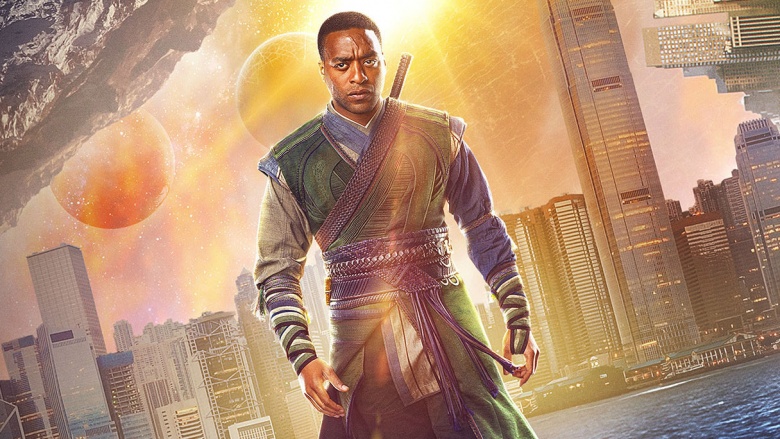How Doctor Strange Will Affect The Rest Of Marvel's Phase Three
Doctor Strange looks like another solid new franchise for Marvel Studios, but it also signifies some seismic shifts to the fabric of the Marvel Cinematic Universe (MCU). Bringing magic, teleportation, the multiverse and universe-destroying baddies into the world of Captain America and Black Panther is one heck of a leap, but it worked.
So how has Doctor Strange changed the MCU, and what effects will it have on the rest of Marvel's Phase Three releases? Let's dig in.
Spoilers ahead for Doctor Strange!
There's officially magic in the MCU
It might seem obvious, considering this is a movie about the eventual sorcerer supreme, but Doctor Strange has introduced a whole lot of power and an entirely new world to the MCU. From mystical weapons capable of extraordinary things to magic spells capable of entering other realities, a whole bunch of crazy stuff now exists in the same continuity as the Hulk and Captain America. We've seen the Thor films dabble in the fantastic, but this is the first time the veil has been pulled back on legit magic. Up until this point, the MCU has largely been a place for grounded stories about technology, or humans augmented and given power by science. That just got blown up in an Inception-style web of reality-bending awesomeness, and it's an exciting proposition for fans.
Doctor Strange has already met Thor, and will be back for more
The entire film was essentially the origin story of Doctor Strange, as Stephen suffers a tragic car crash and explores every medical option to heal his damaged hands. By the end of it, he's a powerful sorcerer, but still working to earn the mantle of Sorcerer Supreme. Now that he's overseeing the New York Sanctum Santorum (Strange's home in the comics canon), Strange is tossed right in the middle of the world of The Avengers. We see that pay off in the first post-credit scene, where Strange has a sitdown with Thor (Chris Hemsworth) about the Asgardian's trip to Manhattan to search for his missing father. Strange is obviously taking on a key role in Earth's protection, and that duty will certainly put him in the same circle as Earth's Mightiest Heroes. Thor has already met him at this point, and he'll apparently be helping out the God of Thunder in a future film (probably Thor: Ragnarok). As Earth faces one of its greatest threats yet in Thanos, you can guarantee Strange will be back in action for The Avengers: Infinity War.
We now have a multiverse, and a character capable of traversing it
This is another big one for the future of the MCU. Ant-Man already alluded to the multiverse with the introduction of the Quantum Realm, but in Doctor Strange we see Stephen fall through myriad alternate realities—and even face off with the big bad Dormammu in the dark dimension. The multiverse is a staple of the Marvel Comics canon, with several stories and alternate versions of characters (most notably the defunct Ultimate Universe, which, ironically enough, inspired parts of the MCU) set across various universes. There's also the note Wong makes about Strange's use of the Eye of Agomatto, where he said he could splinter and/or create branching paths in time. Hmm. This could also play into the multiverse approach. There's been no indication the studio will follow that model on the big screen, but this certainly opens that door if they choose to walk through it a few phases down the line. If Marvel's taking requests, we'd love to see Spider-Gwen's Earth-65 world brought to life on the big screen.
The Eye of Agamotto is an Infinity Stone (probably the Time Stone)
Marvel has used the Infinity Stones as the main McGuffin across pretty much every MCU film up to this point, with the ultra-powerful stones showing up in Thor, Captain America, Guardians of the Galaxy and other films. Now we've presumably found the Time Stone via Doctor Strange's Eye of Agamotto. Introducing the Infinity Stones across all these different films, in all these different forms, has been a stroke of genius that provides a through line while simplifying the canon. With Doctor Strange now tasked with protecting his very own Infinity Stone, capable of turning back time, you'd have to think it'll put him directly in Thanos' crosshairs.
It introduced teleportation to the MCU
Doctor Strange has been a stalwart among the Avengers for decades in the comics, and one of his most useful abilities has always been teleportation. There are numerous occasions when Earth's Mightiest Heroes have used Doctor Strange's teleportation skills to pull a team out of a hopeless situation, and now that ability will exist within the MCU. Up until this point, the Avengers have had to depend on Quinjets and Iron Man's armor to buzz around the globe, but now they've introduced the ability to open up portals anywhere on the globe instantaneously. That's a skill that could certainly come in handy during future films. Like, say, when you're planning a surprise attack on Thanos, perhaps?
There's another Thanos-level (or worse) threat out there now
It was seemingly wrapped up in the finale to Doctor Strange, but the film slyly introduced a villain arguably as powerful (or more powerful) than Thanos—you know, the big bad at the center of Avengers: Infinity War. In Dormammu, Doctor Strange has brought in a cosmic entity literally capable of devouring all of reality. That's a bit more threatening than your typical MCU villain, i.e. guys in knockoff Iron Man suits or HYDRA. Looking to the comics, Dormammu is one of Doctor Strange's most consistent rogues, and it'd stand to reason he'll likely pop up again in the future. Much like Thor set up Loki to become the villain in the first Avengers film, it stands to reason all of Earth's Mightiest Heroes might have to come together and slug it out with Dormammu a phase or two down the line.
It introduced time travel to the MCU
This is another biggie. When Doctor Strange figured out how to use the Eye of Agamotto (a.k.a. the Time Stone), he literally turned back the clock and created a time loop to stop Dormammu. Can you imagine how a genius like Tony Stark will react when he realizes this type of power exists? Yeah, it'll be interesting. Now, we don't think they'll start turning back the clock every time something goes wrong in the MCU, obviously, but the fact that this power exists in this world is something that will need to be addressed at some point. The question of changing history is a ripe storyline to explore, and thanks to Doctor Strange, they have the opportunity to do it now (especially since it doesn't seem like they'll be introducing Doctor Doom's time machine anytime soon, since the Fantastic Four rights are still over at Fox).
It showed Marvel can still do an origin story without leaning on the Avengers
Before Doctor Strange, the last straight-up origin story Marvel attempted was Ant-Man—and it featured an entire subplot focused on connecting Scott Lang to the world of the Avengers. But Doctor Strange was an entirely different type of story, and aside from a brief namedrop (and that post-credit scene with Thor, obviously), it existed in its own little corner of the Marvel universe. Much like Guardians of the Galaxy stretched what Marvel had been able to accomplish up to that point, Doctor Strange does the same thing in another direction. If Marvel can pull off a straight-up magic and sorcery story within the framework of the MCU, there's pretty much nothing they can't do. That bodes well considering there's a Captain Marvel movie on the way, as well as an Inhumans film, both of which will tell very different types of stories compared to what's come before.
It planted the seeds for another powerful Marvel sorcerer
This is one of those blink-and-you'll-miss-it moments, but Doctor Strange dropped a cameo that definitely takes a huge step in setting up another major Marvel sorcerer. When Kaecilius launches his attack, he kills Daniel Drumm (played by Mark Anthony Brighton), protector of the New York Sanctum. So who is Daniel Drumm? He's the brother of Brother Voodoo, a.k.a. Jericho Drumm. Brother Voodoo has been a stalwart of Marvel's mystical world, and has even served as Sorcerer Supreme from time to time in the comics canon. As for Daniel, he's typically portrayed as a ghost in the comics, visible to his brother and helping him on his journeys. So by having Daniel die in this film, it sets the stage for him to eventually return alongside Brother Voodoo. Considering Doctor Strange has proven to be a hit, it stands to reason Marvel will be moving forward with a sequel—and Brother Voodoo would be an obvious choice for a supporting cast member.
There are extremely powerful magic books out there now
If you've been watching this season of Marvel's Agents of S.H.I.E.L.D. on ABC, you've already been introduced to the Darkhold (a very powerful book from Marvel Comics canon). But Doctor Strange introduced a literal library. The entire plot of the film is centered around the theft of a spell from a book in the Ancient One's personal library, and this film has rapidly expanded the MCU's weapons of mass destruction capable of unraveling the entire fabric of reality. Doctor Strange and his band of sorcerers are obviously doing their best to keep these things safe and secure, but it's worth noting these extremely powerful artifacts now exist.
Doctor Strange is looking over the MCU now
Stephen Strange stepped up in a big way during his debut film, literally saving all of reality with some clever magic that found the novice sorcerer facing off with a literal demon god. That's heady stuff, and you'd have to think the next time Earth faces a world-busting threat, Doctor Strange will be there to answer the call and help defend humanity. With the Avengers in utter disarray after Captain America: Civil War, the world needs a few new heroes to step into the void, and Doctor Strange certainly looks up to the challenge. Judging by the role he seems to have taken on in that post-credit scene with Thor (more on that in a minute), Strange is literally keeping tabs on potential threats and taking steps to prevent them. That sets him up as a major player moving forward.
How will the Sokovia Accords affect Doctor Strange?
A battle over superhero accountability was the key point behind Captain America: Civil War, and with Doctor Strange introducing a powerful new figure, it begs the question of how he'll fit into this feud. Looking to the comics, Doctor Strange largely tried to remain independent in Civil War, but ended up helping out Luke Cage, Captain America and their team by allowing them to hide out in the Sanctum Santorum. Judging by his interaction with Thor, it seems Strange views his role as something beyond the petty politics of Earth heroes—so how will he respond when he finally meets up with the rest of the Avengers and is almost certainly faced with the choice of signing on with the Sokovia Accords designed to provide oversight to heroes? They might be too busy fighting Thanos in Avengers: Infinity War to deal with politics, but it stands to reason it could pop up further down the line.
That post-credit scene sets up Thor: Ragnarok
Post-credit scenes are half the fun with Marvel movies these days, and Doctor Strange did not disappoint. The first post-credit scene featured Doctor Strange's first crossover with a member of the Avengers, as he invites Thor to the Sanctum Santorum to kick back and drink a magic beer. Thor reveals he has traveled to New York with his brother Loki in a search for his father, Odin. This is almost certainly a setup for Thor: Ragnarok, and since Doctor Strange pledged to lend a hand, it stands to reason he could have a cameo in that film. It's also curious for another reason: The ending of Thor: The Dark World revealed Loki was posing as Odin, so what has happened between then and now? We'd imagine that's a question that will inform Thor: Ragnarok, and possibly beyond into Avengers: Infinity War.
It also sets up the sorcerer-hunting baddie Mordo
The final post-credit scene also sets up a major plot point for the future of the MCU, as Doctor Strange's ally Mordo (Chiwetel Ejiofor) breaks from Strange's approach to magic and decides to start ridding the world of sorcerers—starting with Mordo taking the magic from Jonathan Pangborn (Benjamin Bratt). For fans who have read the comics, this twist wasn't much of a surprise; Mordo is a classic comics villain for Doctor Strange, and the fact that he started as a friend to Strange left many fans scratching their heads (at least at first). But just like this movie was an origin story for Doctor Strange, it also established Mordo's mission to take out other sorcerers. Looking to Phase Three and beyond, it seems Marvel is setting up Mordo to return as the big bad in an eventual Doctor Strange sequel.

